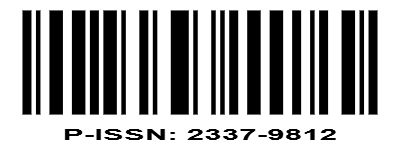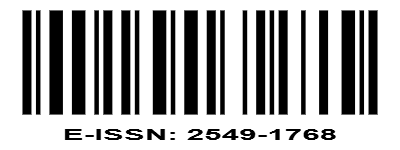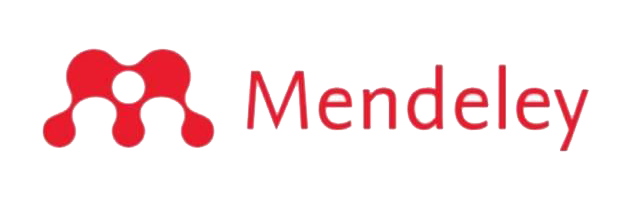PENGARUH STRATEGI METAKOGNITIF TERHADAP KEMAMPUAN BERPIKIR KRITIS DAN HASIL BELAJAR PESERTA DIDIK PADA MATERI SISTEM PENCERNAAN DI SMAN BANDA ACEH
DOI:
https://doi.org/10.22373/biotik.v8i1.6759Keywords:
Metacognitive Strategy, Critical Thinking Skills, Learning OutcomesAbstract
This study aims to determine the effect of metacognitive strategiy on critical thinking skills and student learning outcomes in human digestive system material at SMAN 5 and SMAN 12 in Banda Aceh. This research was conducted in the second semester of the 2018/2019. The method used in this study is Experimental with the Pretest Posttest Control Group Design. The subjects of the study were all students of class XI IPA in both SMAN 5 and SMAN 12 Banda Aceh. The students of SMAN 5 from class IPA 4 was used as the control class meanwhile students from class IPA 2 as the experimental class. Students in SMAN 12 from class IPA 1 was used as control class meanwhile students from class IPA 2 as the experimental class. Data analysis was carried out by normality, homogeneity and t-test. The results showed that the use of metacognitive strategiy had an effect on students' critical thinking abilities, this can be seen from the results of the t-test in SMAN 5, namely t-hit 15,59 > t-tab 1,64 and in SMAN 12 namely t- hit 15,32 > t-tab 1,645, as well as influencing the cognitive learning outcomes of students, seen in the results of the t-test in SMAN 5 namely 10,07 > t-tab 1,64 and in SMAN 12 which is 3,68 > t-tab 1,64. The conclusion is that the use of metacognitive strategiy influences critical thinking skills and student learning outcomes in SMAN 5 and SMAN 12 in Banda Aceh.Downloads
References
Chi M., & Kurt VL. 2010. Meta-Cognitive Strategi Instruction in Intellegent Tutoring Sistem: How, When, and Why. Journal Educational Tchnology & Sociaty.Vol. 13.No. 1. Hal: 25-39.
Countiho. 2007. Metacognitive Awareness and preventation of Relaps in Depression: Emperical Evidence. Journal of Consulting and Clinical Physicology.Vol. 2.No. 70. Hal: 275-287.
Septiana, K., Andreas, P.B.P dan Wulan, C. 2013. Jurnal Belajar Sebagai Strategi Metakognitif Pada Pembelajaran Sistem Imunitas. Unnes Journal of Biology Education.Vol. 2.No. 1. Hal: 1-9.
Sugiono. 2009. Metode Penelitian Kuantitatif Kualitatif dan R&D. Bandung: Alfabeta.
Kuntjojo. 2009. Metode Penelitian. Kediri: Universitas Nusantara PGRI.
Arikunto, S. 2006. Prosedur Penelitian Suatu Pendekatan Praktik. Edisi Revisi VI. Jakarta: PT Rineka Cipta.
Moore, K. C. 2004. Construction and Metcognitive. USA.
Susantini, E. 2004. Memperbaiki Kualitas Proses Belajar Genetika Melalui Strategi Metakognitif dalam Pembelajaran Kooperatif Pada Siswa SMU. Malang: PPS UM.
Peters, E. 2006. Connecting Inkuiry to the Nature Of Science as a Metacognitive Resource. Science Education. 10 (5) : 101-104.
Pengesuti, A. A. 2011. Penerapan Paduan Metode NHT dan STAD untuk Meningkatkan Kemampuan Berpikir Kritis dan Hasil Belajar Kognitif Siswa Kelas VIII SMP N 13 Malang. Prosiding Semnas LS IV. Malang
Ramdani, A. 2012. Pengembangan Perangkat pembelajaran Inkuiri Melalui Kegiatan Lesson Study dan Pengaruh Implementasinya Terhadap Hasil Belajar IPA Biologi dan Keterampilan Berpikir Kritis Siswa Berkemampuan Berbeda Di SMP N Kota Mataram. Malang: PPS UM.
Iwai, Y. 2011. The Effects of Metacognitive Reading Strategies: Pedagogical Implications for EFL/ESL Teachers. The Reading Matrix. Volume 11, (2). University of Wisconsin, La Crosse.
Gasong, D. 2006. Model Pembelajaran Konstruktivistik Sebagai Alternatif Mengatasi Masalah Pembelajaran. (Online). (http://puslit.petra.ac.id/journal/interior, diakses tanggal 30 Maret 2016.
Trianto. 2009. Mendesain Model Pembelajaran Inovatif-Progresif. Jakarta: Kencana.
Arends, R. I. 2008. Learning To Teach. Terj. Yogyakarta: Pustaka Pelajar.
Downloads
Published
Issue
Section
License
Authors who publish with BIOTIK: Jurnal Ilmiah Biologi Teknologi dan Kependidikan agree to the following terms:
- Authors retain copyright and grant the journal right of first publication with the work simultaneously licensed under a Creative Commons Attribution License that allows others to share the work with an acknowledgement of the work's authorship and initial publication in this journal.
- Authors are able to enter into separate, additional contractual arrangements for the non-exclusive distribution of the journal's published version of the work (e.g., post it to an institutional repository or publish it in a book), with an acknowledgement of its initial publication in this journal.
- Authors are permitted and encouraged to post their work online (e.g., in institutional repositories or on their website) prior to and during the submission process, as it can lead to productive exchanges, as well as earlier and greater citation of published work.











